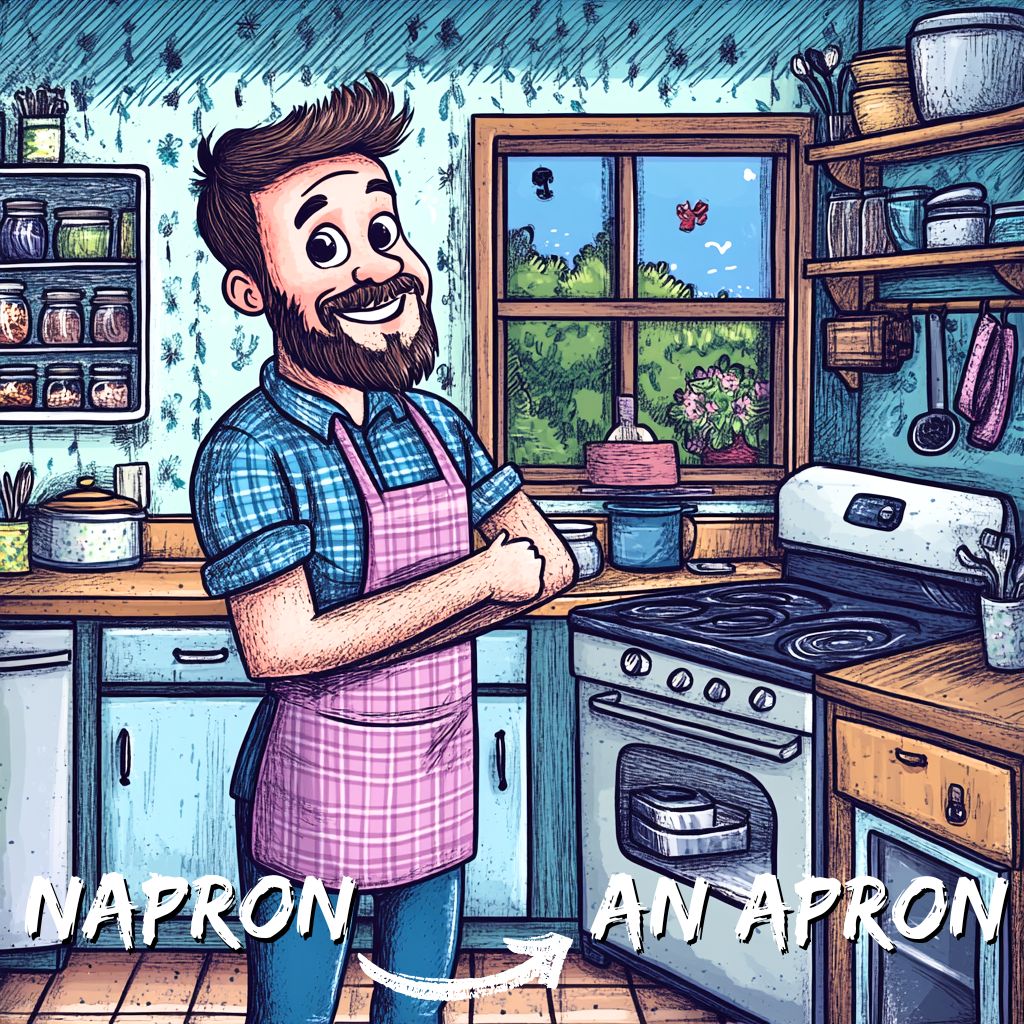Language is a living, breathing entity, constantly evolving in ways that often go unnoticed. Every day, the words we use carry hidden histories, shaped by fascinating forces that have been at work for centuries. Have you ever wondered why we say “squire” instead of “escuyer,” or how a simple word like “phone” came to be?
These changes aren’t just random—they’re the result of intriguing linguistic phenomena that quietly shape the way we speak. Let’s explore the secret life of language, where everyday words reveal their hidden transformations. By the end of this article, you’ll never look at language the same way again!
1. Apheresis
Apheresis is a fascinating linguistic phenomenon where the initial sound or syllable of a word is lost over time. This subtle change often goes unnoticed, but it has shaped many of the words we use today.
Take, for example, the word “squire.” Originally, this word came from the Old French “escuyer,” meaning a young nobleman acting as an attendant to a knight. Over time, the initial “e” sound was dropped, and “escuyer” transformed into “squire.” This is a classic example of apheresis in action, where a word is streamlined for easier pronunciation.
Another instance of apheresis can be seen in the word “lone,” which comes from the older term “alone.” Through the process of apheresis, the initial “a” was dropped, leaving us with “lone,” a word that conveys solitude without the prefix.
Apheresis is one of those quiet linguistic forces that smooths out language, making words simpler and easier to say, often without us even realizing it. Next time you come across a word that seems oddly shortened, you might just be witnessing apheresis at work!
2. Metathesis: When Sounds Swap Places
Metathesis is a linguistic phenomenon where sounds within a word switch places. This might seem like a small change, but it can lead to significant shifts in pronunciation and spelling over time. Metathesis often occurs to make words easier to say, even if we don’t consciously realize it.
One well-known example of metathesis is the word “bird.” In Old English, the word was “brid,” but over time, the “r” and “i” sounds swapped places, giving us the modern word “bird.” This kind of sound rearrangement is a hallmark of metathesis and shows how language naturally evolves to suit the patterns of speech.
Another example is “ask,” which was historically pronounced and sometimes spelled as “aks” in Old English. In some dialects, this metathesized form still persists today.
Metathesis isn’t just a random quirk—it’s a natural part of how language adapts. Words that undergo metathesis often become more comfortable to pronounce, reflecting how speakers unconsciously shape language over time.
3. Assimilation: When Sounds Blend Together
Assimilation is a linguistic phenomenon where a sound in a word changes to become more like a neighboring sound. This process often occurs to make pronunciation smoother and more natural, leading to subtle but important changes in the words we use.
A classic example of assimilation is the word “comfort.” Originally derived from the Latin “confortare,” meaning “to strengthen,” the “n” sound in “con” blended with the following “f” sound, resulting in the modern pronunciation and spelling “comfort.” This blending of sounds is what makes the word easier to say and more fluid in conversation.
Another example is the word “cupboard.” Originally pronounced as “cup board,” over time, the “p” and “b” sounds assimilated, leading to the modern pronunciation “cubboard,” where the “p” is often silent or merged into the “b” sound.
Assimilation is a key force in the evolution of language, making speech more efficient and less cumbersome. It’s one of those invisible adjustments that happen naturally as we speak, smoothing out the rough edges of language without us even noticing.
4. Elision: The Disappearing Act of Sounds
Elision is a linguistic phenomenon where a sound or syllable is omitted from a word, often to make speech flow more smoothly. This process is especially common in everyday conversation, where efficiency and ease of pronunciation often lead to the dropping of sounds.
A well-known example of elision is found in the word “family.” Originally, “family” was pronounced with three distinct syllables: “fam-i-ly.” Over time, however, the middle syllable was often elided, resulting in the common two-syllable pronunciation “fam-ly.” This kind of sound omission helps streamline speech and makes words easier to say quickly.
Another example is the word “every,” which originally had a more pronounced middle syllable, “ever-y.” Through elision, the middle sound is often dropped in casual speech, leading to the modern pronunciation “ev-ry.”
Elision is a natural part of spoken language, helping to make communication more fluid and less effortful. It’s one of those processes that operates behind the scenes, shaping the way we speak without us even realizing it. So, when you notice that a word seems shorter or more concise than expected, elision might be the reason it’s been streamlined for easier use!
5. Back-Formation: Creating New Words by Chopping Off the End
Back-formation is a fascinating linguistic phenomenon where a new word is created by removing an affix (like a suffix) from an existing word. This process often leads to a change in the word’s meaning or grammatical category, usually transforming a noun into a verb.
A classic example of back-formation is the verb “edit,” which was derived from the noun “editor.” Originally, “editor” referred to someone who edits, but over time, speakers created the verb “edit” by chopping off the “-or” ending, giving us a simple and direct way to describe the action of editing.
Another example is the verb “burgle,” which was back-formed from the noun “burglar.” While “burglar” refers to someone who commits burglary, the creation of the verb “burgle” provided a straightforward way to describe the act of committing a burglary.
Back-formation is a powerful force in language, allowing for the creation of new words that are often more concise and easier to use. It reflects our natural tendency to simplify language and create words that better fit our communicative needs.
6. Folk Etymology: When Words Change Because We Misunderstand Them
Folk etymology is a linguistic phenomenon where a word is altered because speakers mistakenly believe it comes from a more familiar or understandable origin. This often leads to changes in pronunciation, spelling, or even meaning, as people reshape words to fit their assumptions.
One interesting example of folk etymology is the word “hangnail.” Originally, this word came from the Old English “agnail,” where “ag” meant “painful” and “nail” referred to a sore or growth near the fingernail. Over time, as “agnail” became less recognizable, people reinterpreted it as “hangnail,” imagining that the word referred to a nail that seems to be hanging off the skin.
Another example is the phrase “pea soup,” which comes from the older term “pease soup.” “Pease” was once a singular term, but because it sounded like a plural, English speakers mistakenly started referring to a single “pea,” eventually changing the word to fit their perception.
Folk etymology shows how language is shaped by the perceptions and misunderstandings of its speakers. It’s a reminder that language is not just a fixed set of rules but a living system that evolves based on how we interpret and use it.
7. Clipping: Shortening Words for Everyday Use
Clipping is a linguistic phenomenon where longer words are shortened, often by dropping one or more syllables, to create a more convenient and colloquial form. This process is common in casual speech, where brevity and ease of communication are key.
A well-known example of clipping is the word “phone,” which is a shortened form of “telephone.” As the use of the telephone became widespread, people naturally began to shorten the word to “phone” for convenience, and the clipped form quickly became the standard.
Another example is “gym,” which comes from the longer word “gymnasium.” Over time, the full word was clipped down to just “gym,” reflecting how language tends to streamline longer terms for everyday use.
Clipping is a natural response to the need for more efficient communication. It’s a process that reflects how language adapts to the practical needs of its speakers, making words shorter and easier to use in fast-paced conversation.
8. Reduplication: Doubling Down on Sounds for Emphasis
Reduplication is a linguistic phenomenon where a word or part of a word is repeated, often with slight variations, to create a new word or emphasize a particular meaning. This process is used in many languages around the world and adds a playful or emphatic quality to the words it shapes.
A familiar example of reduplication in English is the phrase “hodgepodge,” which combines two similar-sounding elements to convey a sense of a jumbled mixture. The repetition of the sound emphasizes the chaotic nature of the collection being described.
Another example is “crisscross,” where the repetition and slight variation in the word underscore the idea of crossing in multiple directions. This kind of doubling is not just for fun; it helps to reinforce the meaning and make the word more memorable.
Reduplication can also be seen in words like “willy-nilly” or “itsy-bitsy,” where the repeated elements add a rhythmic and often playful tone. This process is not only common in English but also in many other languages, where it serves to intensify, pluralize, or add nuance to the meaning.
Reduplication is a linguistic tool that adds flavor and emphasis to language. Whether you’re describing something small (“teeny-weeny”) or emphasizing randomness (“helter-skelter”), reduplication helps to paint a more vivid picture with words. It’s a phenomenon that brings a bit of creativity and rhythm into our everyday speech!
9. Epenthesis: Adding Sounds for Easier Pronunciation
Epenthesis is a linguistic phenomenon where a sound is added to a word, often to make it easier to pronounce. This process usually occurs when a word contains a difficult or awkward combination of sounds, and the addition of a vowel or consonant helps to smooth out the pronunciation.
One common example of epenthesis is the word “athlete.” Many people pronounce it as “ath-e-lete,” inserting an extra “e” sound between the “th” and “l” to make the word easier to say. This added sound helps to break up the cluster of consonants, making the word more fluid and less of a tongue-twister.
Another example is the word “thunder,” which originated from the Old English “thunor.” Over time, an “d” was inserted, giving us the modern form “thunder.” The addition of the “d” makes the word more harmonious and easier to pronounce.
Epenthesis is a subtle but important force in language evolution, helping to adjust words so they flow more naturally in speech. It’s one of those behind-the-scenes processes that keep language adaptable and user-friendly.
10. Amelioration and Pejoration: When Words Improve or Decline Over Time
Amelioration and pejoration are linguistic phenomena that describe how the meanings of words can change over time, either improving (amelioration) or deteriorating (pejoration) in connotation.
Amelioration occurs when a word’s meaning becomes more positive over time. For example, the word “knight” originally meant “servant” or “boy” in Old English. However, over centuries, its meaning has ameliorated to refer to a noble warrior of high status, embodying chivalry and honor.
On the other hand, pejoration is when a word’s meaning becomes more negative. A classic example is the word “silly,” which originally meant “happy” or “fortunate” in Old English. Over time, its meaning shifted to “innocent” or “harmless,” and eventually, it deteriorated further to mean “foolish” or “lacking in sense,” which is the modern usage.
These processes highlight how cultural shifts and societal attitudes can influence language. Amelioration and pejoration remind us that the meanings of words are not fixed; they evolve with time and context, often reflecting the changing values of society.
11. Rebracketing: When Words Get a New Boundary
Rebracketing, also known as misdivision or false splitting, is a linguistic phenomenon where the boundaries of a word or phrase are reinterpreted, often leading to the creation of a new word. This process typically occurs when the division between words in a phrase is misunderstood, causing parts of the phrase to merge or split in unexpected ways.
One of the most famous examples of rebracketing is the word “apron.” Originally, it came from the Middle English word “napron,” derived from Old French “naperon.” However, over time, the phrase “a napron” was misheard as “an apron,” leading to the word we use today.
Another example is the word “nickname,” which originated from “an eke name,” with “eke” meaning “also” or “additional.” Through rebracketing, “an eke name” was reinterpreted as “a nickname,” giving us the modern term for an informal or additional name.
Rebracketing shows how easily language can shift based on how we hear and interpret words and phrases. It’s a reminder that language is not just a set of fixed rules but a flexible and evolving system that adapts to the ways we perceive and communicate.
The Invisible Forces Shaping Our Words
Language is constantly evolving, shaped by fascinating processes that often go unnoticed. From sounds dropping out to words merging together, these linguistic phenomena quietly transform the way we speak. What might seem like a simple word today could have a rich and surprising history behind it.
Uncovering these hidden forces gives us a new appreciation for the words we use daily. Language isn’t just a set of rules—it’s alive, always adapting and changing with us. With that said, whenever you stumble upon an interesting word or phrase, remember: there’s likely a cool story behind it, shaped by centuries of human creativity and interaction. Language is full of surprises, which makes it so fascinating!

Hey fellow Linguaholics! It’s me, Marcel. I am the proud owner of linguaholic.com. Languages have always been my passion and I have studied Linguistics, Computational Linguistics and Sinology at the University of Zurich. It is my utmost pleasure to share with all of you guys what I know about languages and linguistics in general.






